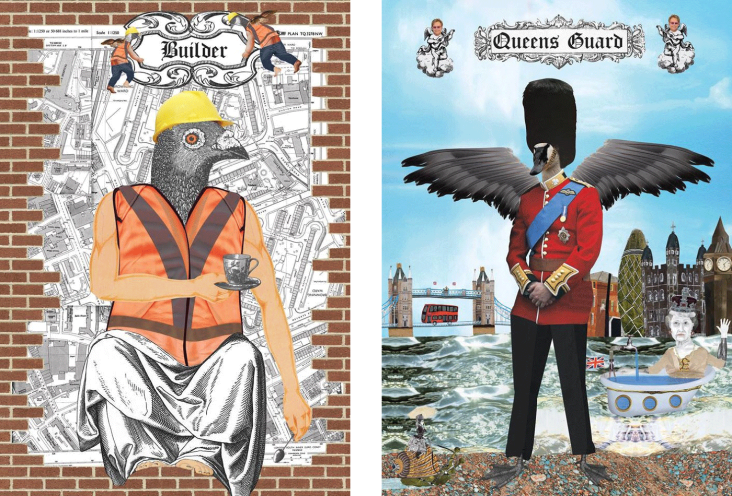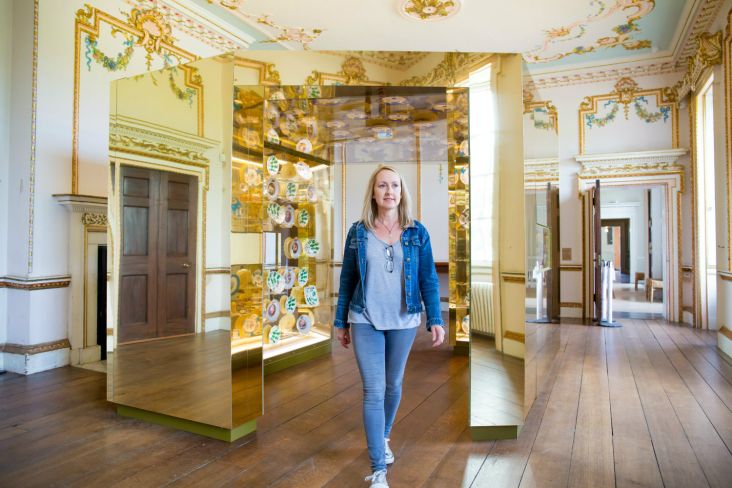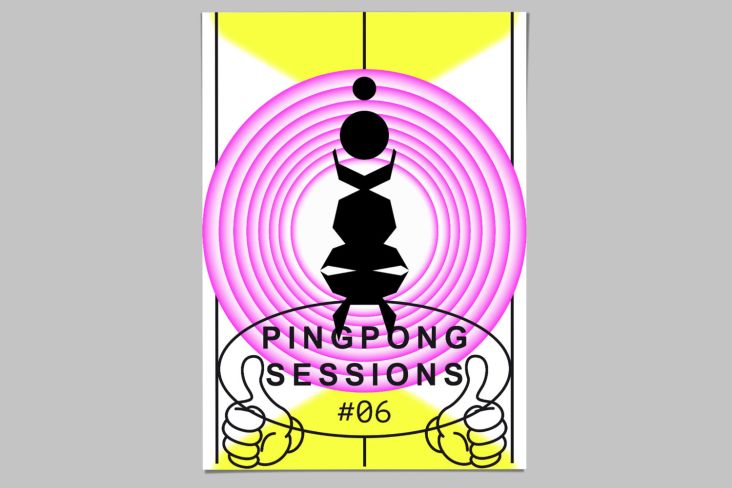10 important TED talks that every freelancer must watch
While there are many joys to the freelance life, it also comes with its fair share of problems, from financial to psychological. But while salaried employees can share their concerns with colleagues and managers, the freelancer can often feel quite isolated and short of people to unload their concerns onto.

Image licensed via Adobe Stock / By SodaWhiskey
Yes, there’s plenty of advice to read online, but sometimes it can be more rewarding to see and hear a human talking, and so watching a TED Talk online can be a great way to get some fresh perspective and pick up some useful tips.
While most of these talks aren’t specifically aimed at freelance creatives, they all touch on subjects that are dear to their hearts. They’re all relatively short too, so whether you’re new to the freelance world or an old hand, it’s well worth spending some time one evening checking them out.
1. How to find work you love: Scott Dinsmore
Once upon a time, Scott Dinsmore was working at a Fortune 500 company and got some terrible advice: ‘Don’t worry about the work you’re doing now, concentrate on building your resume’.
This launched him on a quest to understand why 80 per cent of adults hate the work they do, and more importantly, to identify what the other 20 per cent were doing differently.
In this insightful talk, he explains how he’s distilled the results down to what he calls his Passionate Work Framework, and outlines three surprisingly simple practices for finding and doing work you love, which all happen to be completely within your control.
2. Why work doesn’t happen at work: Jason Fried
We all know that becoming more productive as freelancers is the key to a better income. But it’s also a subject we often find ourselves avoiding because, let’s be honest, it can be a little dull. This talk, however, is anything but boring.
“I’m going to talk about work,” begins Jason Fried, the co-founder & CEO of project management app Basecamp. “Specifically why people can’t get work done at work. Which is a problem we all kind of have.”
It’s a dramatic way of introducing his radical theory of working: that the office isn't a good place to do it. And as this entertaining no-nonsense talk progresses, Field lays out the main problems and offers three suggestions to make work, er, work. A fascinating and potentially life-changing watch.
3. How to make work-life balance work: Nigel Marsh
We’ve all done it: left our jobs and gone freelance, with grand plans for a new work-life balance that will leave our minds and bodies much more centred than the old 9-5. Except it hasn’t worked. We’ve gone on to work harder, longer hours than ever before.
In this thoughtful and well-argued talk, Nigel Marsh addresses the thorny issue of work-life balance. While it’s not specifically targeted at freelancers, the four observations he shares, gleaned from both experience and research, will help anyone to better understand where the problems of work-life balance lie and where the solutions can be found.
4. Embrace the near win: Sarah Lewis
In theory, the freelance life should involve less stress than that of the working stiff. But often, it can magnify our little failures and near-misses to even greater proportions. From having your pitches rejected to being told your commissioned design doesn’t fit the brief, having to deal with disappointments can really start to drag you down.
At her first job at the Museum of Modern Art, art historian Sarah Lewis noticed something important about an artist she was studying: Not every artwork was a total masterpiece. This made her start thinking about the importance of the almost-failure, the near win, in our own lives.
“Success is a moment, but what we’re always celebrating is creativity and mastery,” she points out. And she goes on to explain how, in our careers, it’s actually our near wins that push us forward. A thought-provoking talk that will help you to think about all those freelance niggles and struggles in a whole new light.
5. What makes us feel good about our work?: Dan Ariely
As a freelancer, what is it that motivates you to get up every morning and work? Behavioural economist Dan Ariely believes it’s not purely money, but a sense of purpose and a feeling that you’re making constant progress.
In this engaging TED talk, he presents two eye-opening experiments that reveal our unexpected and nuanced attitudes toward meaning in our work. By revealing and explaining the results, Ariely helps you better understand your own motivations for working, and gives you a new sense of appreciation for the freelance life.
6. A guide to freelance art: Molly Heady-Carroll
Molly Heady-Carroll is an Irish artist who lives in the Netherlands. Known for her pixel art, concept art, games, comics, illustrations, she also organises art shows and game jams and makes video games. But the thing that takes up most of her time is freelance. In this humorous and lively talk, she shares some valuable tips based on her own experience on how freelancers and their employers can work together more effectively.
7. Why do ambitious women have flat heads?: Dame Stephanie Shirley
Many creatives see the freelance life as a potential route into business and entrepreneurship. If that’s you, then here’s a talk you absolutely have to hear.
Dame Stephanie Shirley is the most successful tech entrepreneur you never heard of. In the 1960s, she founded a pioneering all-woman software company in the UK, which ultimately made millionaires of 70 of her team members.
In this eye-opening and enlightening talk, she tells the story of her life, beginning from her escape from Nazi-occupied Europe at the age of five. Along the way, Dame Shirley shares why she went by “Steve,” how she upended the expectations of the time, and some sure-fire ways to identify ambitious women.
8. The year I was homeless: Becky Blanton
When you ask someone in a salaried job why they don’t go freelance, the answer often revolves around the fear of unstable income. Someone for whom that fear came true in an extreme fashion is writer and journalist Becky Blanton.
Blanton planned to live in her van for a year and see the country, but when depression set in after the death of her father and her freelance job ended, her camping trip turned into homelessness. In this intimate talk, she describes her experience of becoming one of America's “invisible” citizens. It’s not a happy subject, but it’s both a cautionary tale and ultimately an uplifting one.
9. A 12-year-old app developer: Thomas Suarez
Most 12-year-olds love playing video games; Thomas Suarez taught himself how to create them. After developing iPhone apps like "Bustin Jeiber," a whack-a-mole game, he is now using his skills to help other kids become developers.
In this talk he shares the lessons he’s learned, and if ever you need a motivational kick up the backside of the “Well if he can do it, why can’t I?” variety, this is it.
10. Why some of us don't have one true calling: Emilie Wapnick
Are you struggling to make sense of your life and career? Always wondering whether you’re pursuing the right discipline, taking on the right freelance projects? In this talk, writer and artist Emilie Wapnick points out that most of us don’t have “one true calling” but are actually what she calls “multipotentialities”. An intelligent and well-reasoned talk that will may help you stop beating yourself up, and just enjoy what you’re doing right now a little better.

















](https://www.creativeboom.com/upload/articles/16/1644496f2bf60696662c3d4c008da08ce3631a30_732.jpeg)




](https://www.creativeboom.com/upload/articles/12/12441d6e8d7e2083c68dc8848c4b42499241855a_732.jpeg)
](https://www.creativeboom.com/upload/articles/cc/cc0ee63cefda7fdc9dc3ff824d40aeaf4947e62e_732.jpeg)

